
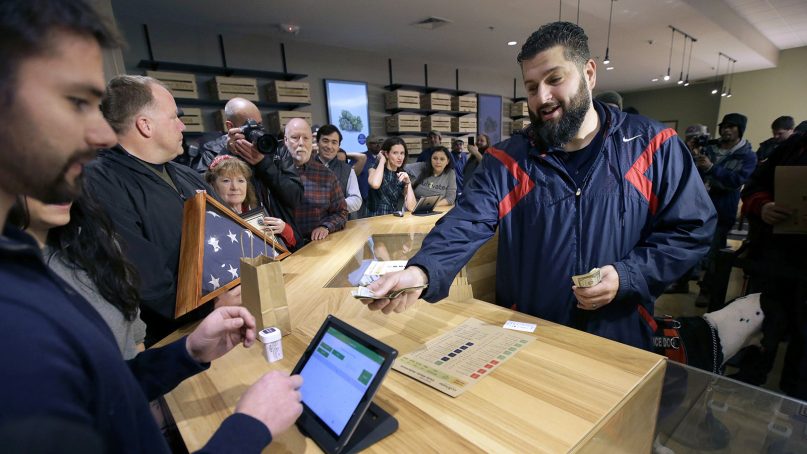
Stephen Mandile, right, an Iraq War veteran from Uxbridge, Mass., is the first to purchase recreational marijuana at the Cultivate dispensary in Leicester, Mass., on the first day of legal sales in Massachusetts on Nov. 20, 2018. Voters approved it in 2016, but the start of recreational marijuana sales didn’t begin until 2018. (AP Photo/Steven Senne)
BOSTON (RNS) — Since the East Coast’s first recreational marijuana shops opened in Massachusetts this past fall, pot fans have snapped up more than $20 million worth of legal weed.
But for many people of faith in the Bay State, legalization hasn’t burned away the moral and health concerns about the use of drugs for fun.
What’s legal isn’t always right — but using pot isn’t always wrong, either, some religious leaders say.
“What sort of a standard do we want to set for marijuana use?” asked Liz Goodman, pastor of Monterey United Church of Christ in Monterey, Mass. “There’s kind of a norm, still, among people who drink alcohol that you don’t drink before 5 o’clock. That’s still kind of a benchmark. But there are no real cultural benchmarks or norms around legal pot use.”
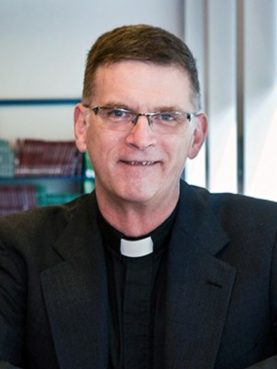
The Rev. Richard McGowan. Photo courtesy of Boston College
Massachusetts is one of 10 states that have, along with the District of Columbia, legalized small amounts of marijuana for adult recreational use. The door to dope swung open despite opposition from the Roman Catholic Archdiocese of Boston, which poured $850,000 into a last-minute effort to defeat the ballot measure in 2016.
Now that new pot shops are opening each month, Catholics leery of recreational marijuana are taking a more nuanced approach. Those urged to abstain include young adults, whose brains are still developing well into their 20s, and anyone who’s prone to abusing it, according to the Rev. Richard McGowan, a Boston College economist who studies the marijuana industry.
“The problem for the church is going to be: If you say the use of alcohol is all right, then why not marijuana?” McGowan said. “There’s a difference. Alcohol can lead to all kinds of problems, and so can marijuana. So you’re expecting a level of maturity around this substance that, probably, the people who are going to use it don’t have.”
Some Massachusetts evangelicals are still trying to stop new pot shops from opening, only now the fight has gone local. They’re counting on a NIMBY (not in my backyard) dynamic in communities such as Acton, which voted in favor of legalizing marijuana statewide and then barred pot shops from town.
The socially conservative Massachusetts Family Institute is now visiting churches twice a week, up from once per quarter two years ago, according to Director of Community Alliances Mike King. The message is always the same: Demand that your elected officials ban pot shops before they’re out there selling marijuana edibles, which might be packaged like candy but can cause harm, especially when kids get their hands on them.
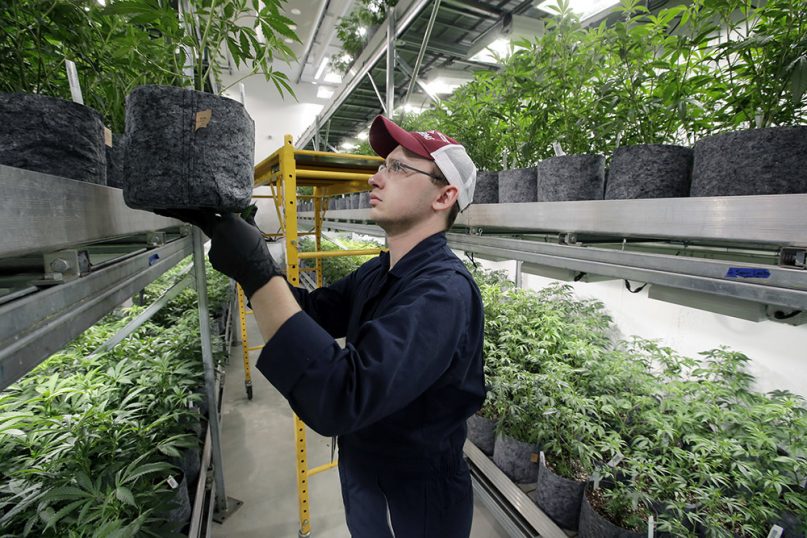
Head grower Mark Vlachos tends to cannabis plants at Sira Naturals medical marijuana cultivation facility in Milford, Mass., on July 12, 2018. (AP Photo/Steven Senne)
“I’ve got a marijuana sermon all ready for your church,” King said in a podcast posted at the MFI website on Jan. 11. He told Religion News Service that Massachusetts evangelical churches are more eager to hear a call to action around drugs than other issues, including abortion.
“The ability to get into a church and speak on Sunday morning becomes much easier, for some reason, when you’re talking about drugs than when you’re talking about life and religious liberty,” King said.
Bay State evangelicals have shown they can keep pot shops out of cities where pews are filled with immigrants. Example: In Lawrence, where 40 percent of the population is foreign-born, 120 congregations banded together and helped pressure the City Council to impose a ban. In 20 of the approximately 100 communities that have banned pot shops, King said, MFI was active in mobilizing churches to help make it happen.
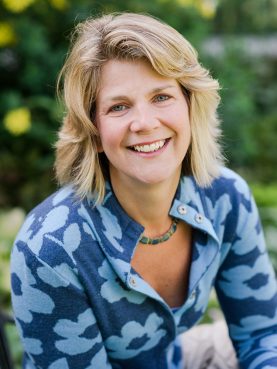
Pastor Liz Goodman. Courtesy photo
Yet as Massachusetts residents grow more comfortable with legal pot, many in faith communities aren’t fighting the sale of weed in their towns. Nor are they saying the faithful must always abstain in order to have clear consciences. Some situations nevertheless call for restraint, leaders say, and they’re beginning to carve out guidelines for the new landscape.
For Goodman, the question of whether to get high isn’t a dilemma; she’s never done it and has no interest in starting. But she’d like her fellow clergy to heed some rules of thumb if they’re going to use legal marijuana.
“I would expect my colleagues, at least, to not use pot when they’re with their parishioners, in the same way that they would not use alcohol when they’re with their parishioners,” Goodman said. “It’s less a matter of standards than a condition of mind. … (After) a toke or two, you’re less careful about what you divulge or what your manner is.”
Using marijuana for medicinal purposes is easier to justify than recreational use, some say.
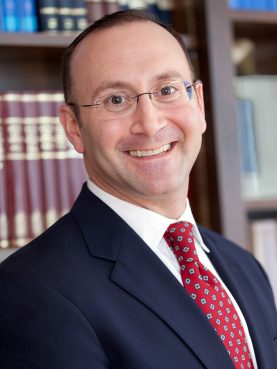
Rabbi David Lerner. Courtesy photo
“I don’t know where the line is between medical and recreational,” said Rabbi David Lerner of Temple Emunah, a Conservative congregation in Lexington. “I think there would be more of an argument to (use marijuana) if there was some kind of medical component.”
Lerner said it can be important in some cases for clergy to explore why individual congregants are getting high, especially if it’s interfering with daily tasks or responsibilities. He said it could be an indicator of deeper, unresolved issues.
“We want to make sure that people who are using marijuana recreationally are not medicating themselves and avoiding concerns that should be treated medically,” Lerner said. “For some people, using substances recreationally can lead to more problematic use. People need to be mindful of their purpose in turning to a substance.”
And while clergy can now get high without breaking the law, they’re still held to a higher standard, sources say. Lerner noted that religious leaders are role models, and young people who see elders getting high might wrongly decide: “It’s fine for them, so it’s fine for me.”
“It certainly keeps things clearer and cleaner if clergy just don’t use it,” Goodman said. “But you’re not talking about behavior that is unquestionably problematic. You’re talking about use of marijuana for pleasure.”
